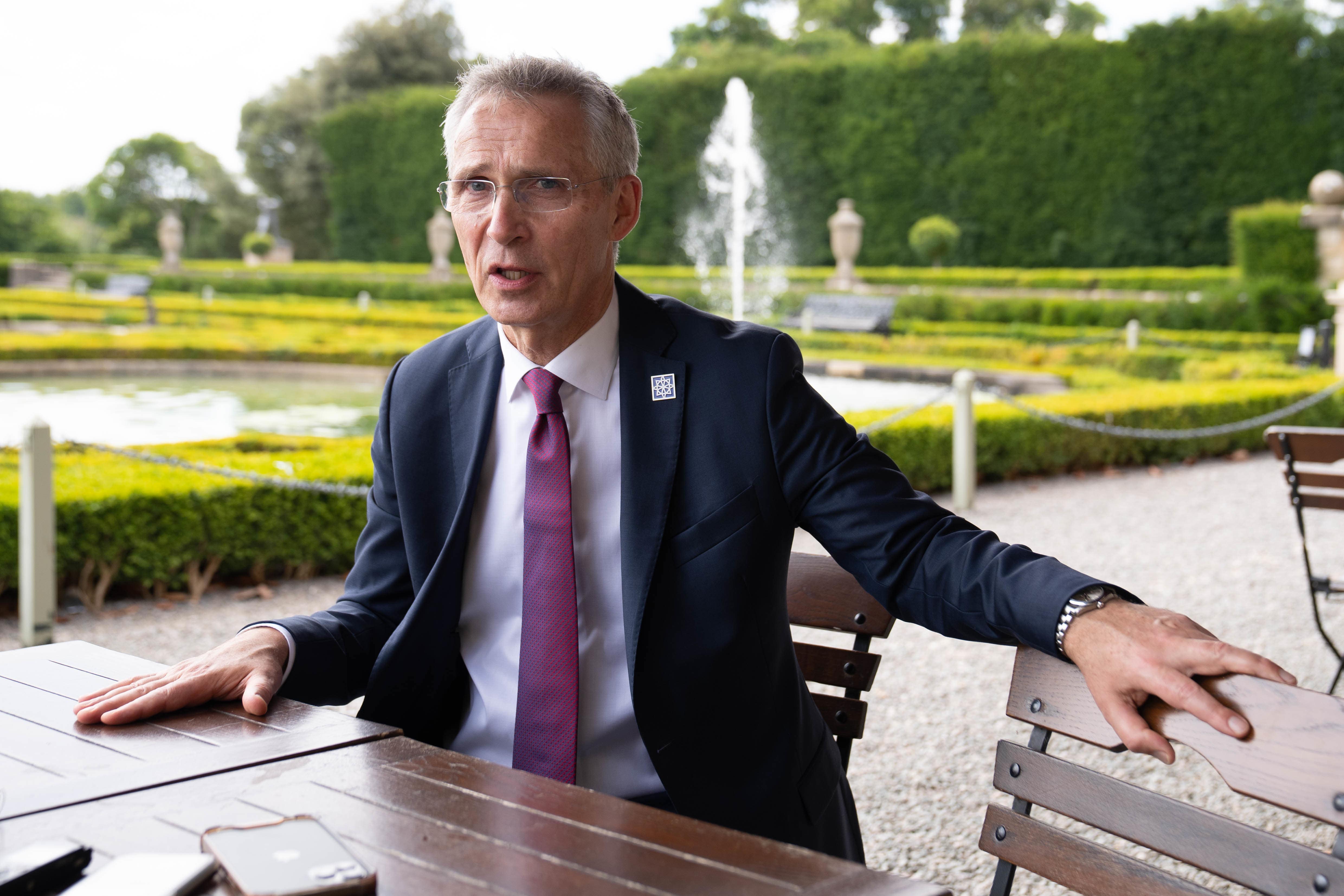Nato chief Stoltenberg: UK ‘leading by example’ on defence spending
European Nato nations are under pressure to spend more on their own defence with the prospect of Donald Trump’s return to the White House.

Your support helps us to tell the story
From reproductive rights to climate change to Big Tech, The Independent is on the ground when the story is developing. Whether it's investigating the financials of Elon Musk's pro-Trump PAC or producing our latest documentary, 'The A Word', which shines a light on the American women fighting for reproductive rights, we know how important it is to parse out the facts from the messaging.
At such a critical moment in US history, we need reporters on the ground. Your donation allows us to keep sending journalists to speak to both sides of the story.
The Independent is trusted by Americans across the entire political spectrum. And unlike many other quality news outlets, we choose not to lock Americans out of our reporting and analysis with paywalls. We believe quality journalism should be available to everyone, paid for by those who can afford it.
Your support makes all the difference.The UK is leading the way in showing Europe it needs to spend more on defence, Nato chief Jens Stoltenberg said, as allies consider how to respond to the possible return of Donald Trump to the White House.
Mr Trump and his new running mate JD Vance have been highly critical of European nations relying on US military protection while not spending enough on their own defence, sounding alarm bells across the continent about the future of the military alliance.
But Nato secretary general Mr Stoltenberg said European allies were already increasing their military budgets and could avoid “self-fulfilling prophecies” if Mr Trump wins November’s US election.
Speaking to the PA news agency at the European Political Community summit, Mr Stoltenberg said: “The most important thing we can do, regardless of what you might think about the outcome of the US elections, is to invest more in defence because that will provide more capabilities, more forces, higher readiness for European allies, and it will also string strengthen the transatlantic bond and demonstrate for the United States that they’re not carrying the burden alone.
“Because the reality is that it has been fair to criticise European allies for not spending enough. Of course, the United Kingdom and some allies have been over 2% for many years, but most European allies have been far below.”
Nato has a target for members to spend at least 2% of gross domestic product on defence and the UK has set a goal to spend 2.5%, although Sir Keir Starmer’s administration has not yet set a timetable for that commitment.
Mr Stoltenberg said the situation was changing, with 23 allies meeting the 2% target, up from just three a decade ago.
“Therefore, we should not create self-fulfilling prophecies. I expect that the United States will continue to be a strong ally, also after the elections, for three reasons: one is that it is in the US’s security interests to have a strong Nato. It makes the United States safer and stronger. ”
The second was bipartisan support in the US Congress and opinion polls indicating the American public backs Nato.
“And thirdly, the main criticism from former president Trump has not primarily been against Nato, it has been against Nato allies not investing enough in Nato and that is changing,” Mr Stoltenberg said.
The UK will set out its roadmap to spending 2.5% as part of the root-and-branch strategic defence review.
Speaking to PA at Blenheim Palace, he added: “I think it’s too early to say whether we should agree a new minimum level or floor. But at least we need to realise that 2% is not enough, we need to spend more than 2%.
“The United Kingdom is leading by example and I welcome the defence review.”
Lord Robertson, a former Nato secretary general who is leading the defence review, has warned the West faces a “deadly quartet” of Russia, China, Iran and North Korea working increasingly closely together.
Mr Stoltenberg said Lord Robertson is “a very knowledgeable man who knows Nato, who knows defence” and agreed there was close co-operation between the four countries.
“What we see is that authoritarian powers are more and more aligned. We see that not least in Ukraine, where North Korea, Iran and – not least – China are the enablers of Russia’s brutal war against Ukraine.
“North Korea providing ammunition, Iran providing drones and China providing decisive support for the Russian war economy – dual-use equipment, the microelectronics, the microprocessors that enable the Russians to build the missiles, the bombs they use against Ukraine.”
He said it demonstrated why it was “even more important to stand together in Nato” adding: “The time to stand up for freedom and democracy is now and the place is Ukraine. So we are tested in Ukraine and we need to support Ukraine.”
Mr Stoltenberg backed Volodymyr Zelensky’s forces using Nato-supplied weapons to strike targets in Russia.
“According to international law, Ukraine has the right to self defence. And the right to self defence includes also striking military targets on the territory of Russia.”
Mr Stoltenberg’s decade in charge at Nato will end later this year, with former Netherlands prime minister Mark Rutte taking over on October 1.
The outgoing secretary general said he did not want to look back on his record but said: “We are the most successful alliance in history in 75 years, we have prevented any military attack and if we continue to stand together, we will ensure that this is also the case for the future.”